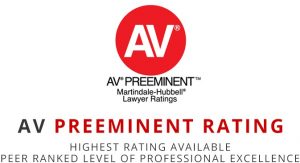Getting A Mortgage After Filing Bankruptcy
Getting A Mortgage After Filing Bankruptcy
One of the concerns many people have when filing a bankruptcy case is they will never qualify for a home mortgage again. This concern is heightened for those who are surrendering their home through the bankruptcy filing. However, our Miami Lakes bankruptcy attorneys want to put your worries to rest.
Individuals who file for bankruptcy relief can qualify for mortgages after bankruptcy filings. It may take patience and dedication to improving your credit rating, but you can borrow money to purchase a home after you receive a bankruptcy discharge.
Types of Mortgages You May Qualify for After Bankruptcy
Even though a lender can decide to approve a loan at any time, must underwriting conditions require a waiting period after a bankruptcy discharge to be eligible for a loan. The waiting periods discussed below apply to most bankruptcy discharges; however, there could be exceptions and programs that may shorten the time to be approved for a mortgage after bankruptcy.
- Conventional Loans— The federal government does not back conventional loans. Many of the major banks offer these loans. In most cases, you must wait for two years after a Chapter 13 discharge and two to four years after a Chapter 7 discharge to qualify for a conventional loan.
- FHA Loans — The Federal Housing Administration (FHA) insures FHA mortgages made by FHA-approved lenders. Because these are government-backed loans by major lenders, they usually offer favorable terms. For most individuals, they must wait two years after a discharge in Chapter 7 to be eligible for an FHA mortgage. However, Chapter 13 debtors have a one-year waiting period, but some debtors may qualify sooner.
- VA Loans –The Department of Veterans Affairs (VA) insures mortgages for veterans, servicemembers, and surviving spouses. As with FHA loans, VA-backed loans can have better terms than other mortgages. In most cases, you must wait two years after a discharge in a Chapter7 or Chapter 13 case to be eligible for a VA loan. However, in a few cases, you may shorten this waiting period by submitting a request with a letter of explanation.
There are other types of mortgages and loans offered by some lenders. However, non-conventional loans typically carry high-interest rates and other unfavorable terms. It may be difficult to be patient; however, you can use the time you must wait to qualify for a conventional loan to improve your credit score and save money for a down payment. By taking the time to improve your credit score and save money for a down payment, you may be eligible for a lower interest rate and other favorable terms.
The Importance of Improving Your Credit Score After Bankruptcy
Even though you do not apply for a mortgage until after the waiting period has expired, you still must qualify for the mortgage based on the loan requirements, including your credit scores. Credit scores have a significant impact on whether you qualify for a loan, and if so, how high the interest rate will be for that loan.Therefore, re-establishing your credit is extremely important while you wait the required time to apply for a mortgage after bankruptcy.
Some of the ways you can improve a credit score after bankruptcy include:
- Make all future credit payments before the due date for each payment. Delinquent payments are one of the quickest ways to damage your credit score.
- When you are ready to venture into credit, you may want to consider a secured credit card. However, you need to verify that the company reports the information to the credit reporting agencies so that you receive the benefit of making your payments on time.
- Gas cards and retail cards may be another way to begin charging small amounts and making timely payments. Always keep the balance at 30 percent or below the credit card limit.
- If you decide to apply for a personal loan, car loan, or student loan, you need to make sure that you can comfortably afford the payments even if you have a decrease in income.
- Begin a savings account and add to the account each month. You need an emergency savings account that can cover the loan and credit payments for at least six months in case you lose your job. You do not want your hard work to be destroyed while you are looking for another job.
The Federal Trade Commission (FTC) and USA.gov have information available on their websites about credit scores and how to improve credit ratings.
Call for a Free Consultation with a Florida Bankruptcy Lawyer
Filing bankruptcy can be a difficult decision, especially if you have concerns about life after bankruptcy. However, filing bankruptcy is often the first step in correcting debt problems so that you can recover and rebuild a stronger financial future.
The Miami Lakes bankruptcy attorneys of Adams Law, P.A. help clients throughout South Florida find affordable solutions to their debt problems. You do not need to handle a financial problem on your own. Our team of legal professionals is here to provide answers, support, and guidance as you begin to get rid of bills and eliminate debt.
Call (305) 615-2905or use the contact form on our website to schedule your free consultation with one of our bankruptcy attorneys in Florida.


